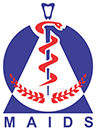Filter
Priodontal Diseases are a group of diseases that affect the tissues that support and anchor the teeth. Left untreated, these diseases result in destruction of gums, alveolar bone and outer layer of the tooth root.
- Red, swollen, puffy gums
- Tendency for gums to bleed, particularly with tooth brushing and glossing
- Tender, sore gums
- Tooth sensitivity to temperature extremes
- Persistent bad breath (halitosis)
- Pain during chewing
- Mobile teeth
- Shrunken, re ceding gum line - gingival recession
- Pockets or gaps between the teeth and the gums
- Abscesses, or pockets of infection - gingival or periodontal abscess
- Pus oozing from the gums or between the teeth
- Smoking
- Age. People usually don't show signs of gum disease until they are in their 30s or 40s. although teenagers rarely develop Periodontitis, they can develop gingivitis, the milder form of gum disease.
- Diabetes.
- Medcations. Some drungs
- Hormonal changes in girls/women. As in pregnancy, puberty, and when patient is taking birth control pills.
- Genetic susceptibility
- Stress
- Illnesses. Diseases like cancer of AIDS and their treatments can also affect the health of gums.
- Brush your teeth twice a day — proper brushing decreases plaque build-up.
- Cleaning between the teeth — flossing the teeth OR using the toothpicks.
- Using Mouthwashes.
- Don't use Tabacco products.
- Eat a well balanced Diet.
- Visit the dentist routinely for a check up and professional cleaning
- Periodontitis is primarily a disease of the periodontal ligament, not of bone.
- Bacterial plaque is the main cause of periodontitis
- Smoking and diabetes are the principal exacerbating factors
- Periodontitis is associated with complex microbial environment
- Success of treatment depends on the control of bacterial plaque: antimicrobial drugs have only an adjunctive role in a full treatment plan
Misconception
- Periodontitis is caused by food debris
- It results from osteoporosis
- Periodontitis is related to dietary deficiencies
- Systemic antibiotics may cure periodontitis
- A mouth rinse may cure periodontitis
- Recent advances mean that damaged tissues can be regenerated fully
Fact
- Periodontitis is caused by the colonization of teeth by bacterial plaque
- Periodontitis occurs in both sexes and usually starts before age 30
- Dietary deficiencies are almost never involved in periodontitis
- Antibiotics help as adjunctive treatment only
- Agents in mouth rinses cannot penetrate the plaque
- New and expensive techniques may enhance the usual treatment, but cannot restore damaged tissue fully


 Maulana Azad Institute of Dental Sciences
Maulana Azad Institute of Dental Sciences


